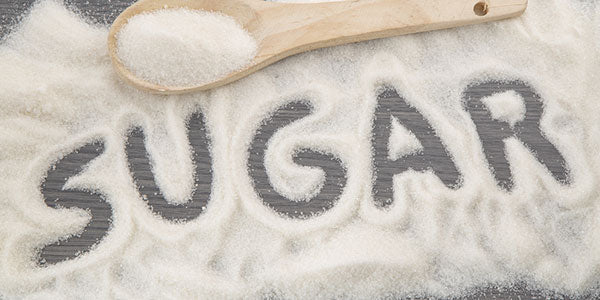
Dieters with a sweet tooth often wage war against their wills and lose after surrendering to sugar-laden cakes, pies, and cookies. American adults receive, on average, 16% of their calories from added sugars, which include sugars and other caloric sweeteners that are not naturally found in foods but are added during processing, preparation, or consumption. However, weight losers need not banish sugar altogether. According to the Academy of Nutrition and Dietetics, individuals can safely consume both nutritive and non-nutritive sugars in accordance with federal nutrition guidelines. Learn about the effect of sugar on the body and about how much sugar is optimal so that you can taste sweet success in your weight loss program.
The Effect of Sugar on the Body
While naturally occurring sugars are found in fruits and milk products, a typical American diet consists largely of added sugars like high fructose corn syrup, white sugar, and corn syrup that are used to enhance the flavor and appearance of foods. While added sugars can lead to bargain prices on grocery items, the cost to your health is sky-high.
Unlike wholesome food sources with naturally occurring sugars, added sugars avail high calories but little nutritive value. For this reason, added sugars are often referred to as "empty" calories, and can be removed from your diet without sacrificing its nutrient density. But this can prove difficult, as depending on how much sugar you consume alongside other foods in your diet, added sugar may cause you to exceed your overall calorie needs and gain weight.
In addition to increasing your waistline, research shows that excess sugar is linked to an increased risk of developing Type 2 Diabetes. Sugary beverages that you pair with your meals, whether fruit juices, sports drinks, or sweet tea can pack a double whammy, conferring over one hundred calories and raising blood glucose with just a single serving. Most startling of all is evidence indicating that your risk of mortality from heart disease increases in proportion to the percentage of sugar in your diet.
Recommended Intake of Sugar
Solid fats and sugar together comprise 35% of the average American diet, but should consist of no more than 5-15% of your total calorie intake, according to the USDA. A rule of thumb from the American Heart Association is to consume no more than 100 calories in added sugar per day for women (about 6 teaspoons) or 150 calories per day for men (about 9 teaspoons). Considering that the average carbonated soda contains 132.5 calories in added sugar, it's easy to see how quickly added sugar can occupy all of your caloric real estate, and how the removal of these culprits can free up room in your diet for more healthful foods.
How to Avoid Too Much Sugar in Your Diet
As a percentage of calories from added sugars in the American diet, the major sources are soda, energy drinks, and sports drinks (36% of added sugar intake), grain-based desserts (13%), sugar-sweetened fruit drinks (10%), dairy-based desserts (6%), and candy (6%). If you consume foods in any of these categories, aim to eliminate, minimize, or replace these calories with fresh fruits and vegetables, whole grains, and lean meats. When grocery shopping, read the ingredients and avoid hidden culprits like high fructose corn syrup. During cooking, use less table sugar. When eating, skip sweetened beverages or eat smaller dessert portions to reduce your intake of added sugar. In addition, reduce the frequency with which you consume sugar-laden foods, so that over time, your craving for added sugar dissipates.
BistroMD's diet delivery service can help you curb your sugar cravings with mouth-watering meals that forego excess sugar and calories for fresh, wholesome ingredients that will put you on a short and sweet route to weight loss success.






